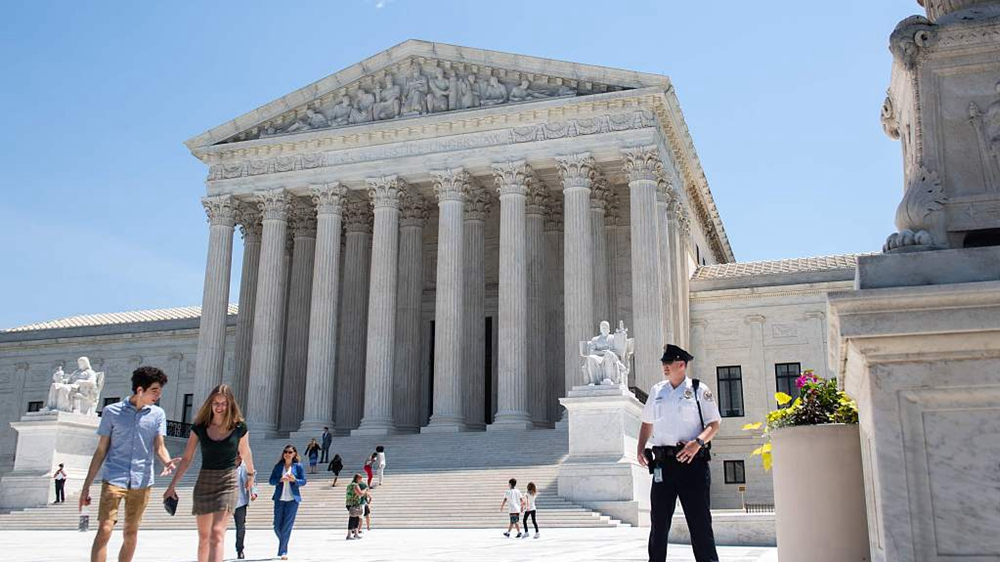
The U.S. Supreme Court is seen in Washington, D.C., June 24, 2019. /VCG Photo
The U.S. Supreme Court is seen in Washington, D.C., June 24, 2019. /VCG Photo
The U.S. Supreme Court on Friday agreed to hear a bid by President Donald Trump's administration to resurrect a federal law that makes it a felony to encourage illegal immigrants to come or stay in the United States after it was struck down by a lower court as a violation of free speech rights.
In a case involving a California woman named Evelyn Sineneng-Smith convicted of violating the law, the justices will review a ruling by the San Francisco-based 9th U.S. Circuit Court of Appeals invalidating it for infringing on rights guaranteed under the U.S. Constitution's First Amendment.
Federal prosecutors in 2010 brought charges against Sineneng-Smith, a U.S. citizen who ran an immigration consultancy in San Jose, accusing her of making money by duping illegal migrants into paying her to file frivolous visa applications while remaining in the country indefinitely. Her business primarily served Filipinos who worked as home healthcare providers.
Sineneng-Smith was convicted in 2013 of violating provisions of the decades-old federal law that bar inducing or encouraging an illegal immigrant to "come to, enter or reside" in the United States, including for financial gain. She also was convicted of mail fraud and was sentenced to 18 months in prison and three years of supervised release.

A migrant boy, who returned to Mexico with his parents from the U.S. under the Migrant Protection Protocols to wait for their court hearing for asylum seekers, plays at a migrant shelter run by the federal government in Ciudad Juarez, September 26, 2019. /VCG Photo
A migrant boy, who returned to Mexico with his parents from the U.S. under the Migrant Protection Protocols to wait for their court hearing for asylum seekers, plays at a migrant shelter run by the federal government in Ciudad Juarez, September 26, 2019. /VCG Photo
The 9th Circuit in 2018 ruled that the law must be struck down because it is overly broad and criminalizes even simple speech that is protected by the First Amendment. For instance, a grandmother could theoretically be charged under the law for telling her grandson whose visa has expired, "I encourage you to stay," the 9th Circuit noted.
The court begins its next nine-month term on Monday.
In Trump administration's appeal to the Supreme Court, Solicitor General Noel Francisco said the law is important to stopping those who enrich themselves by encouraging illegal immigration. The law targets only communication that fosters unlawful activity, which is not protected by the First Amendment, Francisco said in a filing.
Sineneng-Smith's lawyers, urging the court to deny the case, argued that the law goes well beyond forbidding speech essential to a crime and covers both criminal and non-criminal immigration infractions. There are better ways to catch wrongdoers, her lawyers said, including provisions barring transporting or harboring illegal migrants.
Trump's hardline stance toward immigration – legal and illegal – has been a fundamental part of his presidency and his 2020 re-election bid.
Source(s): Reuters